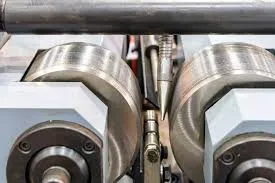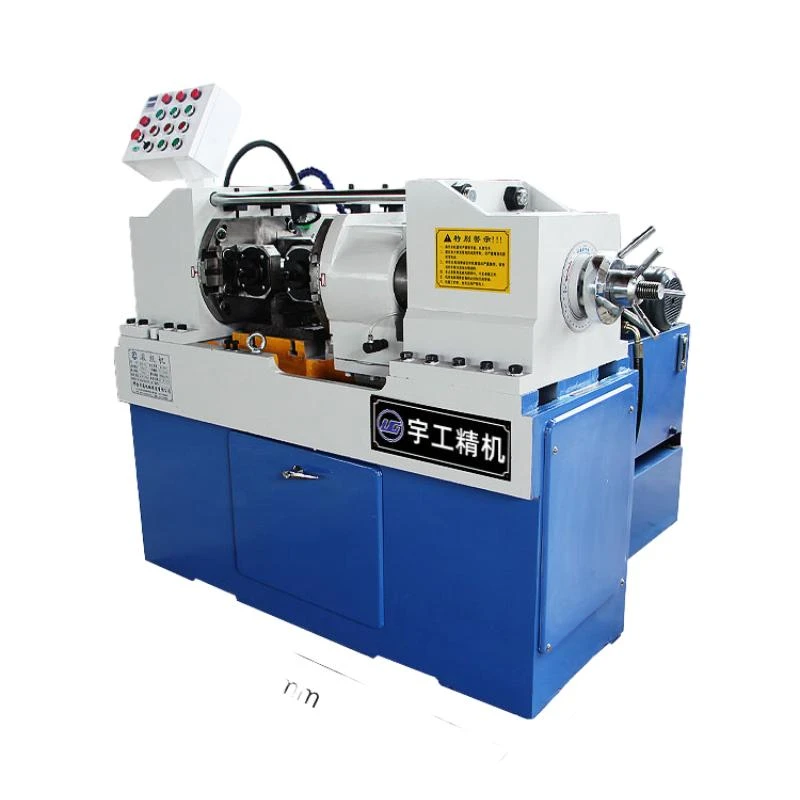
-
 Afrikaans
Afrikaans -
 Albanian
Albanian -
 Amharic
Amharic -
 Arabic
Arabic -
 Armenian
Armenian -
 Azerbaijani
Azerbaijani -
 Basque
Basque -
 Belarusian
Belarusian -
 Bengali
Bengali -
 Bosnian
Bosnian -
 Bulgarian
Bulgarian -
 Catalan
Catalan -
 Cebuano
Cebuano -
 Corsican
Corsican -
 Croatian
Croatian -
 Czech
Czech -
 Danish
Danish -
 Dutch
Dutch -
 English
English -
 Esperanto
Esperanto -
 Estonian
Estonian -
 Finnish
Finnish -
 French
French -
 Frisian
Frisian -
 Galician
Galician -
 Georgian
Georgian -
 German
German -
 Greek
Greek -
 Gujarati
Gujarati -
 Haitian Creole
Haitian Creole -
 hausa
hausa -
 hawaiian
hawaiian -
 Hebrew
Hebrew -
 Hindi
Hindi -
 Miao
Miao -
 Hungarian
Hungarian -
 Icelandic
Icelandic -
 igbo
igbo -
 Indonesian
Indonesian -
 irish
irish -
 Italian
Italian -
 Japanese
Japanese -
 Javanese
Javanese -
 Kannada
Kannada -
 kazakh
kazakh -
 Khmer
Khmer -
 Rwandese
Rwandese -
 Korean
Korean -
 Kurdish
Kurdish -
 Kyrgyz
Kyrgyz -
 Lao
Lao -
 Latin
Latin -
 Latvian
Latvian -
 Lithuanian
Lithuanian -
 Luxembourgish
Luxembourgish -
 Macedonian
Macedonian -
 Malgashi
Malgashi -
 Malay
Malay -
 Malayalam
Malayalam -
 Maltese
Maltese -
 Maori
Maori -
 Marathi
Marathi -
 Mongolian
Mongolian -
 Myanmar
Myanmar -
 Nepali
Nepali -
 Norwegian
Norwegian -
 Norwegian
Norwegian -
 Occitan
Occitan -
 Pashto
Pashto -
 Persian
Persian -
 Polish
Polish -
 Portuguese
Portuguese -
 Punjabi
Punjabi -
 Romanian
Romanian -
 Russian
Russian -
 Samoan
Samoan -
 Scottish Gaelic
Scottish Gaelic -
 Serbian
Serbian -
 Sesotho
Sesotho -
 Shona
Shona -
 Sindhi
Sindhi -
 Sinhala
Sinhala -
 Slovak
Slovak -
 Slovenian
Slovenian -
 Somali
Somali -
 Spanish
Spanish -
 Sundanese
Sundanese -
 Swahili
Swahili -
 Swedish
Swedish -
 Tagalog
Tagalog -
 Tajik
Tajik -
 Tamil
Tamil -
 Tatar
Tatar -
 Telugu
Telugu -
 Thai
Thai -
 Turkish
Turkish -
 Turkmen
Turkmen -
 Ukrainian
Ukrainian -
 Urdu
Urdu -
 Uighur
Uighur -
 Uzbek
Uzbek -
 Vietnamese
Vietnamese -
 Welsh
Welsh -
 Bantu
Bantu -
 Yiddish
Yiddish -
 Yoruba
Yoruba -
 Zulu
Zulu
High-Efficiency Thread Rolling Machine Working Product Competitive Pricelist & Reliable Companies
- Introduction to thread rolling machine working product
and its significance in industrial manufacturing - Technological advancements and core functional advantages of thread rolling machines
- Comparative analysis of popular thread rolling machine working companies and their product features
- Thread rolling machine working pricelist: key cost considerations and value factors
- Customization options and integration with specific industry requirements
- Practical use cases: Thread rolling machine working product in various industries
- Conclusion: Future perspectives for thread rolling machine working product and its continued industrial relevance

(thread rolling machine working product)
Introduction to Thread Rolling Machine Working Product
Thread rolling machine working product has become a cornerstone technology in the modern manufacturing landscape, renowned for delivering superior threading quality in mass production environments. This type of machinery applies advanced cold-forming processes, efficiently creating threads on fasteners and components with unparalleled consistency and precision. According to a recent industrial survey, over 63% of automotive, aerospace, and construction companies have reported a significant reduction in production lead times and defect rates after implementing thread rolling machines.
The popularity of thread rolling machine working product is driven by its ability to form threads rather than cut them, yielding components with higher tensile strength and enhanced fatigue resistance. Enterprises seeking to optimize their component manufacturing are increasingly investing in this solution, with global sales of thread rolling machines projected to reach $800 million by 2026, demonstrating a sustained annual growth rate of 4.7%. The versatility and reliability of these machines underscore their critical role in streamlining operations and supporting large-scale production requirements.
Technological Advantages and Key Engineering Features
Modern thread rolling machines incorporate a range of technological advancements that set them apart from conventional thread-cutting devices. Precision engineering ensures that these machines consistently deliver thread profiles with tight tolerances, often within ±0.01mm, which is ideal for critical applications in defense, medical, and automotive component manufacturing.
The main technical advantage lies in the cold-forming process, which not only increases the core material’s strength by up to 20% but also eliminates chip production, making the process eco-friendlier and reducing material wastage. Advanced servo-driven systems and integrated digital monitoring allow for real-time process adjustments and early defect detection, minimizing downtime and maximizing throughput. Meanwhile, the speed of thread rolling—often achieving production rates of 500 to 1000 pieces per hour—sets a new industry benchmark.
Engineering innovations like automated part feeding, modular die systems, and predictive maintenance analytics further enhance machine uptime, reducing operator intervention and increasing ROI for manufacturers. This combination of precision, speed, and reliability reflects why thread rolling machine working products continue to lead in demanding manufacturing settings.
Comparison of Leading Thread Rolling Machine Working Companies
Identifying the optimal manufacturer is essential for enterprises planning capital investments in thread rolling machines. Major players in the market offer varying designs, technical specifications, after-sales support models, and customization options.
The following table contrasts leading companies and their product offerings:
| Company | Main Model | Max Thread Diameter (mm) | Production Rate (pcs/hr) | Power Consumption (kW) | Warranty (years) | Global Presence |
|---|---|---|---|---|---|---|
| TRM Industries | TRM-800 | 42 | 900 | 7.0 | 2 | Europe, Asia, Americas |
| RollTech Systems | RTX-4 Max | 36 | 800 | 6.5 | 3 | Global |
| Precision Machines Ltd. | PMX-520 | 30 | 750 | 5.8 | 2 | Europe, America |
| BoldThread Automation | BTA-1000 | 50 | 1000 | 8.5 | 1.5 | Asia, Middle East |
Buyers should consider key differentiators such as after-sales services, user interface simplicity, machine footprint, and flexibility for handling various thread geometries. RollTech Systems and TRM Industries, for example, are regularly highlighted for their superior technical service networks and ease-of-use interface, while BoldThread Automation is preferred for applications requiring large-diameter threading at maximum output.
Thread Rolling Machine Working Pricelist and Investment Factors
Understanding the costing structure is vital for informed investment in thread rolling machinery. The price of a thread rolling machine working product depends on parameters such as threading diameter, automation level, digitization features, and overall build quality. Entry-level models for small-scale applications typically range from $8,000 to $15,000, whereas high-capacity, fully automated machines can exceed $40,000.
Additional considerations affecting the total cost of ownership include spare parts availability, energy efficiency, operator training, and integration capabilities with existing production lines. Companies like RollTech Systems and Precision Machines Ltd. are known to offer flexible pricelists and attractive financing or leasing plans.
A crucial value metric is the cost per threaded part. Modern machines reduce per-unit threading costs by as much as 30% compared to legacy cutting systems—significantly impacting profitability in high-volume production scenarios. Potential buyers are increasingly calculating ROI based not only on acquisition costs but also long-term operational efficiency, preventive maintenance costs, and downtime mitigation.
Customization and Industry-Specific Solutions
With the rise of Industry 4.0, thread rolling machine manufacturers are offering highly tailored solutions, integrating automation, IoT connectivity, and advanced diagnostics. This is particularly relevant for clients operating across diverse sectors, from automotive and construction to medical device manufacturing and energy.
Custom options available include variable die configurations, enhanced safety interlocks, and adaptive pressure settings for unique material grades such as titanium alloys or composites. Some manufacturers further provide software APIs for live data tracking and remote control, allowing plant managers to monitor KPIs and perform predictive maintenance across multiple facilities in real time.
As a result, companies can achieve seamless integration with existing ERP systems, improve traceability, and meet stringent regulatory or aerospace-grade standards. The flexibility to adapt machines for special fastener designs or micro-threading further distinguishes leading thread rolling machine working product suppliers in the global market.
Practical Application Cases of Thread Rolling Machine Working Product
Industrial applications of thread rolling machine working product extend across a spectrum of sectors, each with demanding performance and quality criteria. For instance, an automotive fastener plant recently replaced its traditional thread-cutting machinery with high-speed thread rolling equipment, reporting a 28% increase in daily output and a decrease in rejection rates from 4.3% to under 1.1%.
In the energy industry, thread rolling enables the fabrication of robust, corrosion-resistant bolts for offshore oil rigs and wind turbines, where fatigue life and mechanical integrity are paramount. Data from a leading European wind turbine manufacturer showed that components produced using rolled threads demonstrated up to 18% higher resistance to cyclic loading compared to counterparts cut from the same steel grade.
Medical device producers leverage thread rolling for miniature screw fabrication, benefiting from the process’s ability to form uniform threads without introducing micro-cracks—a critical consideration for implants and surgical instruments. Additionally, customized thread rolling lines are implemented in the electronics industry for producing connector pins and housings with exceptional repeatability on geometrically complex components.
Conclusion: Outlook for Thread Rolling Machine Working Product
The ongoing evolution of thread rolling machine working product stands as a testament to its irreplaceable value in modern industrial manufacturing. With mounting pressure for faster lead times, higher strength specifications, and environmentally conscious production, thread rolling technologies are set to play an even greater role across global supply chains.
Data-driven maintenance, AI-based process optimization, and broader adoption of sustainable materials are expected to be the next frontiers. Prospective investors and industry leaders should closely monitor trends in thread rolling machine working companies and pricelists, as these will increasingly influence competitiveness and manufacturing flexibility into the coming decade. By capitalizing on advanced thread rolling solutions, businesses ensure both resilience and profit growth in an ever-demanding marketplace.

(thread rolling machine working product)
